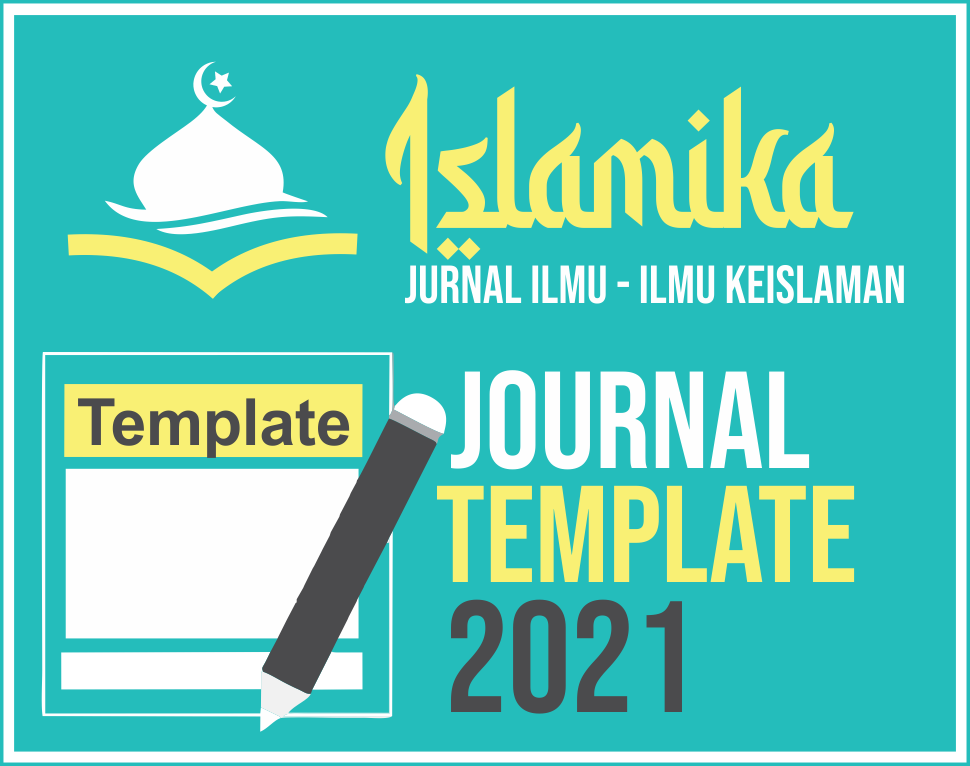Pemikiran Ekonomi Islam Monzer Khaf
DOI:
https://doi.org/10.32939/islamika.v22i2.1080Abstract
Islamic man is the basic assumption of Monzer khaf in his thinking, socio economic justice in Islamic can be achieved when it can combine zakat or alms to the economic aggregate, carry out economic activities in accordance with the rules of Islamic economics, in Islamic consumption, it is required to consume al- Tayyibat and al-Rizq, zakat is ameans of distributing wealh from the rich to the poor, al-Qirad as a form of cooperation between capital owners and entrepreneurs. This money should not be used as a benchmark for prices where the quantity affects various transactions. Therefore, Monzer Khaf is very concerned about the consumption of goods so that there will be no mistakes.
Islamic man is the basic assumption of Monzer khaf in his thinking, socio economic justice in Islamic can be achieved when it can combine zakat or alms to the economic aggregate, carry out economic activities in accordance with the rules of Islamic economics, in Islamic consumption, it is required to consume al- Tayyibat and al-Rizq, zakat is ameans of distributing wealh from the rich to the poor, al-Qirad as a form of cooperation between capital owners and entrepreneurs. This money should not be used as a benchmark for prices where the quantity affects various transactions. Therefore, Monzer Khaf is very concerned about the consumption of goods so that there will be no mistakes.
Downloads
References
Adlini, M. N., Dinda, A. H., Yulinda, S., Chotimah, O., & Merliyana, S. J. (2022). Metode Penelitian Kualitatif Studi Pustaka. Edumaspul: Jurnal Pendidikan, 6(1), 974–980. https://doi.org/10.33487/edumaspul.v6i1.3394
Agusti, N. (2021). Islamic Man: Deep Insight Monzer Kahf. JURNAL ILMIAH SYIAR, 21(2), 82–92. https://doi.org/http://dx.doi.org/10.29300/syr.v21i2.5352
Antu, Y., Mohi, E. H., Nggilu, R., Arsana, I. K. S., Binolombangan, F., & Endey, N. (2021). ANALISIS IMPLEMENTASI KEBIJAKAN EKONOMI DAN IMPLIKASINYA TERHADAP UMKM DI KOTA GORONTALO. Publik: Jurnal Manajemen Sumber Daya Manusia, Administrasi Dan Pelayanan Publik, 8(2), 230–237. https://doi.org/10.37606/publik.v8i2.231
Chaniago, S. A. (2014). Perumusan Manajemen Strategi Pemberdayaan Zakat. Jurnal Hukum Islam, 12(1), 87–101.
Corinna, A. N., & Cahyono, E. F. (2020). Pola Perilaku Konsumsi Generasi Millenial Terhadap Produk Fashion Perspektif Monzer Kahf : Studi Kasus Mahasiswi Universitas Airlangga. Jurnal Ekonomi Syariah Teori Dan Terapan, 6(2), 319. https://doi.org/10.20473/vol6iss20192pp319-330
Hadi, A., Sumari, A. D. W., & Djapri, S. (2018). BAURAN KEBIJAKAN FISKAL-MONETER DAN DAMPAKNYA BAGI ANGGARAN PERTAHANAN. Jurnal Pertahanan & Bela Negara, 6(3). https://doi.org/10.33172/jpbh.v6i3.318
Huda, N. (2021). IMPLEMENTASI KONSEP HOMO ISLAMICUS MONZER KAHF DALAM ENTERPRENEURSHIP KIAI MAHMUD ALI ZAIN. Al-Mustashfa: Jurnal Penelitian Hukum Ekonomi Syariah, 6(2), 121. https://doi.org/10.24235/jm.v6i2.7931
Jamaludin, J., & Syafrizal, R. (2020). Konsep Dasar Ekonomi Menurut Syariat Islam. MUAMALATUNA, 12(1), 38. https://doi.org/10.37035/mua.v12i1.2859
Kholis, N. (2009). Membedah Konsep Ekonomi Islam. La_Riba, 3(2), 269–276. https://doi.org/10.20885/lariba.vol3.iss2.art8
Luqmanul Hakim, & Jamaludin Achmad Kholik. (2022). Qiradh dalam Perspektif Kitab Kifayah Al-Akhyar (Imam Taqiy Ad-Din Al-Hishni Asy-Fi’i). AL-MAQASHID: Journal of Economics and Islamic Business, 2(2), 30–45. https://doi.org/10.55352/maqashid.v2i2.640
Nurhadi, N. (2018). PEMBIAYAAN DAN KREDIT DI LEMBAGA KEUANGAN. Jurnal Tabarru’: Islamic Banking and Finance, 1(2), 14–24. https://doi.org/10.25299/jtb.2018.vol1(2).2804
Nuzuli, A. K., & Sunata, I. (2022). Dinamika komunikasi pada keluarga yang memiliki istri berpenghasilan lebih dari suami. Jurnal Komunikasi Profesional, 6(2), 158–168.
Pratiwi, A. (2021). Kebijakan Ekonomi: Perspektif Ekonomi Politik Dalam Pembangunan di Indonesia. Abiwara : Jurnal Vokasi Administrasi Bisnis, 3(1), 1–14. https://doi.org/10.31334/abiwara.v3i1.1847
Sabir, M. (2016). RIBA DALAM PERSPEKTIF HADĪS NABI SAW. Jurnal Ilmiah Al-Syir’ah, 8(2). https://doi.org/10.30984/as.v8i2.8
Santoso, S. (2016). SEJARAH EKONOMI ISLAM MASA KONTEMPORER. An-Nisbah: Jurnal Ekonomi Syariah, 3(1). https://doi.org/10.21274/an.2016.3.1.59-86
Suar, A., Meirison, M., & Nazar, Z. (2020). Islamic Economic Redefinition and its Methodology Among Contemporary Thinkers. Kawanua International Journal of Multicultural Studies, 1(1), 7–17. https://doi.org/10.30984/kijms.v1i1.3
Subaidi, M., & Muchlasin, M. (2022). Abdul Manan economics PERSPEKTIF MUHAMMAD ABDUL MANNAN TENTANG KEGIATAN EKONOMI ISLAM. Jurnal Adz-Dzahab: Jurnal Ekonomi Dan Bisnis Islam, 7(1), 109–128. https://doi.org/10.47435/adz-dzahab.v7i1.868
Tho’in, M. (2015). KONSEP EKONOMI ISLAM JALAN TENGAH (KAPITALIS – SOSIALIS). Jurnal Ilmiah Ekonomi Islam, 1(03). https://doi.org/10.29040/jiei.v1i03.34
Ubaidillah, A. (2018). Metodologi Ilmu Ekonomi Islam Monzer Kahf. JES (Jurnal Ekonomi Syariah), 3(1). https://doi.org/10.30736/jesa.v3i1.36
Wahyuni, T. (2018). eori Konsumsi dalam Perspektif Monzer Kahf. IAIN Metro.
Zakiyatul Miskiyah, Arif Zunaidi, Sodiq Almustofa, & Mahrus Suhardi. (2022). Kebijakan Fiskal dalam Perspektif Ekonomi Makro Islam. Istithmar : Jurnal Studi Ekonomi Syariah, 6(1),69–83.
Downloads
Published
How to Cite
Issue
Section
License
Copyright (c) 2022 Ahmad Alif Anwar, Alvin Adi Putra Alamsah, Setia Rini Arista

This work is licensed under a Creative Commons Attribution-ShareAlike 4.0 International License.










